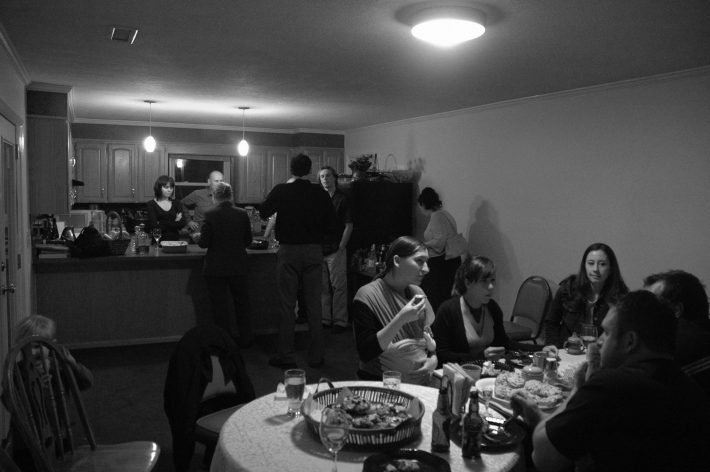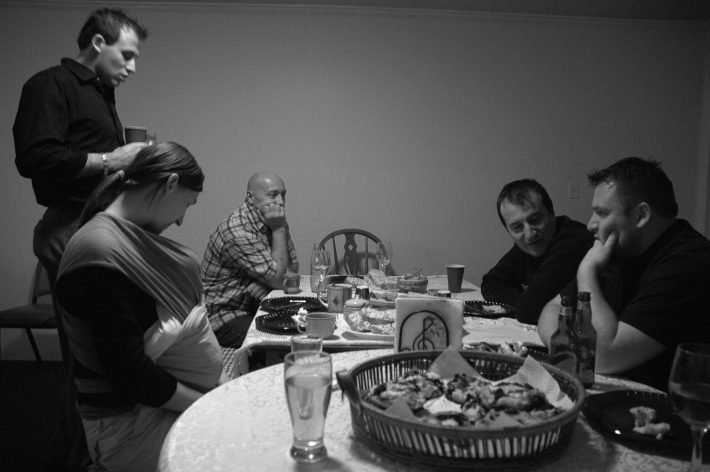We have several Polish friends in the area, and a surprising number are in mixed marriages: a Pole and a Bulgarian; a Pole and a Czech; a Pole and an American. We went to a house-warming party at the Pole/Czech couple’s house, and as always happens at such parties, I got to thinking about the effects of the English language’s relative isolation. Last night, the Czechs spoke Czech, the Poles spoke Polish, and everyone was mutually intelligible. And a Slovak couple been there, they could have spoken Slovakian as well and we’d all get along fine.
I try to imagine what it would be like to experience something similar: to hear someone speaking Dutch, for example, and understand enough of it to be communicative. Poles understand Slovaks; Urdu speakers understand a sizable portion of Hindi; someone fluent in Spanish would make a bit of sense out of Portuguese — but there’s no equivalent in English, that I know of. Sure, German has “gut,” and there are a lot of English/French cognates thanks to 1066, but nothing approaching the level of intelligibility speakers of Slavic languages experience.
For me, it can be a bit of a nightmare. I understand a lot of Czech, but it’s a stretch to get a real sense of what’s being said.
Of course the real winners in such a situation are the children. Growing up speaking three languages — what a gift to give your child. But I know of situation slightly more linguistically advantageous: a former Polish student of mine married a Spaniard. They live in Vienna and speak English to each other. Now if they could only get a, say, Chinese babysitter…


0 Comments